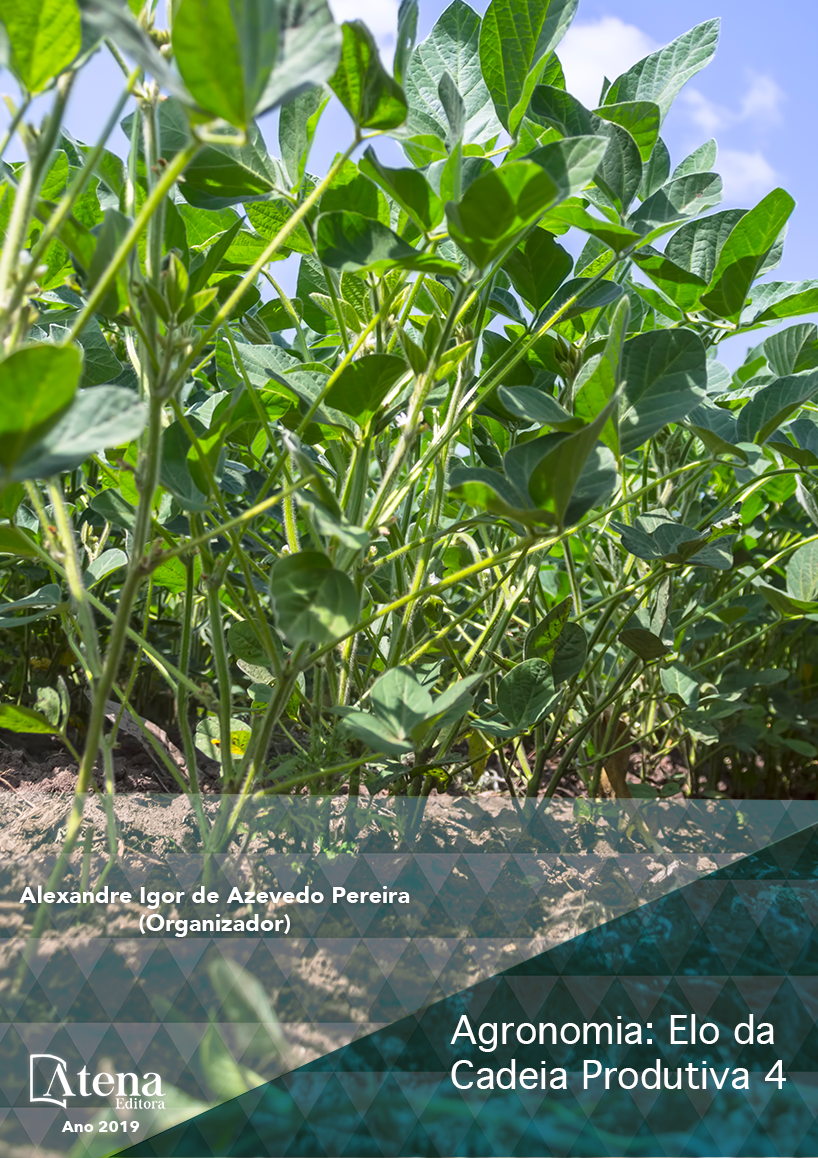
PANORAMA E VIABILIDADE ECONÔMICA DO CULTIVO ORGÂNICO EM PLANTIO DIRETO NA BAIXADA FLUMINENSE, ESTADO DO RIO DE JANEIRO
Nos sistemas de produção agrícola
no Brasil a degradação do meio ambiente
depende, principalmente, do manejo do
solo, da água e dos agroquímicos utilizados.
Estimar os custos de produção de determinado
empreendimento permite analisar a viabilidade
da atividade e a rentabilidade econômica.
Dentro desse contexto, esse trabalho teve o
objetivo de estimar a viabilidade econômica
de duas simulações de produção em sistemas
orgânicos. O experimento foi implantado em
uma unidade de produção orgânica registrada
pela ABIO (Associação de Agricultores
Biológicos do Estado do Rio de Janeiro) na
zona rural do município de Seropédica-RJ. O
experimento constou da implantação de parcelas
experimentais utilizando o delineamento em
blocos inteiramente casualizados com quatro
repetições. Inicialmente foram cultivadas quatro
plantas de cobertura: crotalária (Crotalaria
juncea) amendoim forrageiro (Arachis
pintoi) braquiária (Brachiaria brizantha) e
milheto (Pennisetum americanum) que foram
cultivadas até atingirem o pleno florescimento,
quando foi realizada sua roçada. As plantas
de cobertura ficaram dispostas sobre as
parcelas onde posteriormente foi implantada
a cultura da berinjela e após sua colheita foi
realizado o plantio do milho. Para avaliação da
rentabilidade, os valores de custos de insumos
e serviços foram utilizados de acordo com os
preços médios levantados pela Epagri e valores
de preço de comercialização praticados pelo
Ceasa RJ. Para a cultura do milho, a lucratividade
foi de 8,9% no primeiro cultivo e de 79,4% no
segundo. Para o cultivo de berinjela, obteve-se
uma lucratividade de 49% no primeiro ciclo de
cultivo e de 89 % no segundo ciclo.
PANORAMA E VIABILIDADE ECONÔMICA DO CULTIVO ORGÂNICO EM PLANTIO DIRETO NA BAIXADA FLUMINENSE, ESTADO DO RIO DE JANEIRO
-
DOI: 10.22533/at.ed.43219040420
-
Palavras-chave: Agricultura orgânica, Plantio direto, Produtividade, Milho, Berinjela. Apoio Financeiro: CNPq, CAPES, FAPERJ, UFRRJ
-
Keywords: Organic agriculture, no-till system, Productivity, Corn, Eggplant.
-
Abstract:
In the Brazilian Agriculture production systems, the environmental
degradation depends, mainly, on the management of soil, water and agrochemicals
used. Estimate the production costs of a particular development allows analyzing the
activity viability and economics rentability. In this context, this work had the objective
to estimate the economic viability of two organics systems production simulations. The
experiment was implanted in an organic production unit registered by ABIO (Biological
Farmers Association of Rio de Janeiro State) in the rural area of the municipality of
Seropédica-RJ. The experiment consisted of the implantation of experimental plots
using a completely randomized block design with four replications. At the beginning,
four cover crops were planted: crotalaria (Crotalaria juncea), forage peanut (Arachis
pintoi), brachiaria (Brachiaria brizantha) and millet (Pennisetum americanum) which
were cultivated until they reached full bloom, when their mowing was carried out. The
cover plants were arranged in the plots where posteriorly was implanted the eggplant
culture and after its harvest was realized the corn planting. For the rentability evaluation,
the costs values of the inputs and services were utilized in accord with the averages
prices determined by Epagri and the commercialization prices values practiced by
Ceasa-RJ. For the corn culture, the lucrativity was 8.9% in the first cultivation and of
79.4% in the second. For the eggplant cultivation was get a lucrativity of 49% in the first
cultivation cycle and of 89% in the second cycle.
-
Número de páginas: 15
- Rafael Gomes da Mota Gonçalves
- Cyndi dos Santos Ferreira
- Tadeu Augusto van Tol de Castro
- Dérique Biassi
- Marcos Gervasio Pereira
- Everaldo Zonta
- Lucas Vasconcelos Rocha


